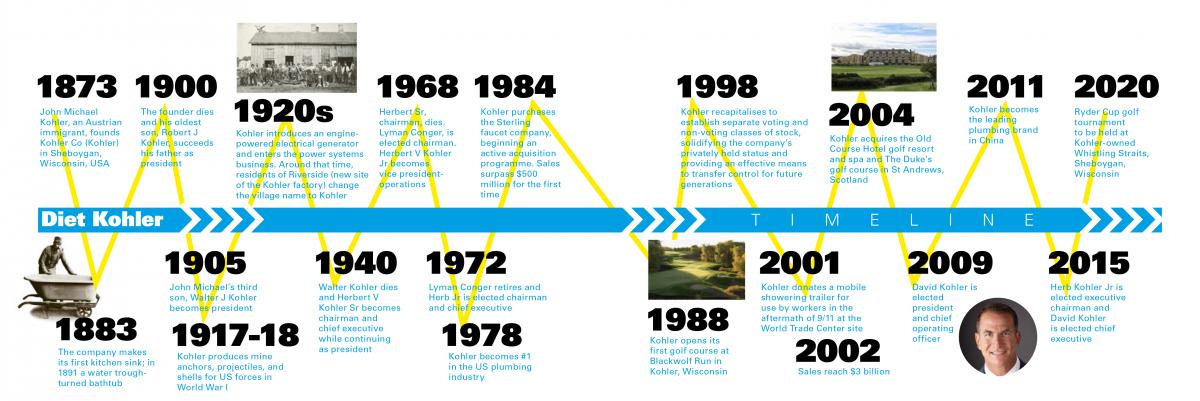Everything but the kitchen sink: The Kohler family dynasty on governance, next gens and philanthropy
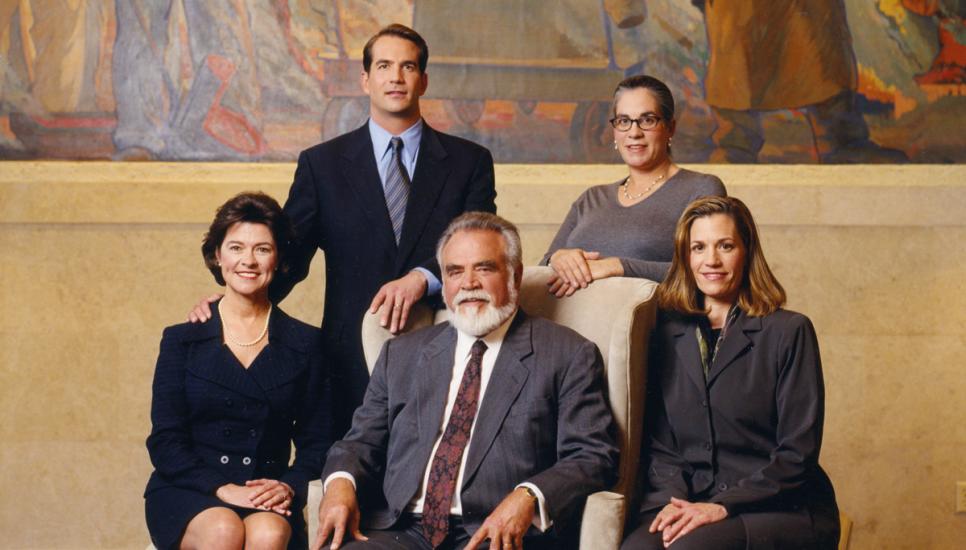
Socially progressive, but with a streak of personal resilience, four generations of Kohlers have built one of America's oldest and most successful privately-held companies. Margie Goldsmith finds out how the plumbers found success in the pipeline
It all started with a bathtub. In 1873, in a corner of Wisconsin, on Lake Michigan, John Michael Kohler, a young Austrian immigrant and skilled metal worker, was given an interest in a small foundry and machine shop as a wedding present from his father-in-law. Some 18 years later, Kohler heated a combination horse trough and hog scalder to 1700 degrees Fahrenheit, sprinkled some enamel powder on it and suggested, in a one-page catalogue, “When furnished with four legs will serve as a bathtub.”

According to Kohler lore, he sold it to a local farmer for one cow and 14 chickens. And while the item's use as hog scalder was considered a more important marketing point than its ability to function as a bathtub, the tub innovation helped spark a revolution. It provided the impetus for the entry of the Kohler Company into the plumbing business, its mainstay through four generations of leadership for more than 140 years.
Bathtub to billions
While continuing to innovate bathtub and lavatory design, the Kohler Company today is one of the oldest and largest privately-held companies in the US. The company is ranked by Fortune among the Top 25 most important US private companies (ahead of computer manufacturer Dell).

Kohler has four main business groups: kitchen and bath, power, interiors, and hospitality including golf courses, spas and hotels that the company added in the last 20 years of the 1900s. Its golf courses include the five star Old Course Hotel, Golf Resort Spa and The Duke's Golf Course, both in St Andrews, Scotland, and the site of the 2020 Ryder Cup golf tournament—Whistling Straits. It has more than 30,000 staff (which it calls associates) on six continents (Kohler's UK subsidiary is best known for manufacturing Mira Showers). The Kohler's current advertising slogan, “The bold look of Kohler”, fits not only the company, but the management as well.
Talent on tap
The board of directors is composed of five Kohler family members and six outside directors; beneath that is an executive committee and a corporate operating committee, the highest-level committees in the company. There are now four generations of Kohler management, but no-one who has led the company has put his footprint on its fortunes longer than Herbert “Herb” Vollrath Kohler Jr.
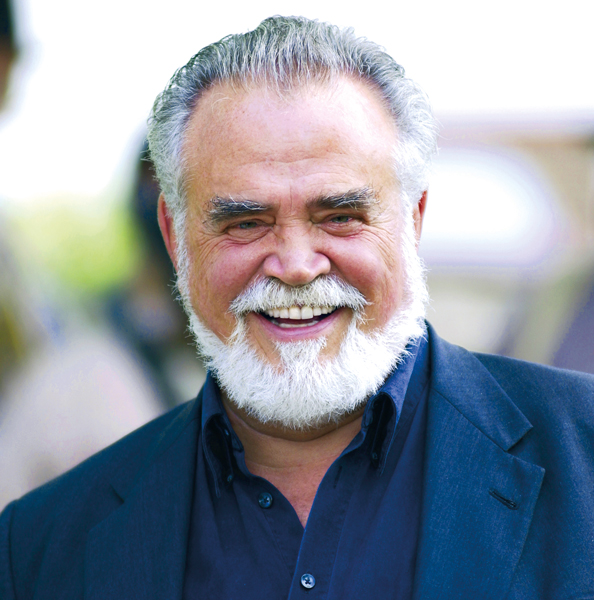 Grandson of founder John Michael Kohler and son of Herbert Kohler Sr, Herb Jr became vice president of operations in 1968 after his father's death. Four years later, at the age of 33, he was elected chairman of the board and chief executive. In 2015, Herb's son David was elected president and chief executive and Herb was elected executive chairman (see timeline).
Grandson of founder John Michael Kohler and son of Herbert Kohler Sr, Herb Jr became vice president of operations in 1968 after his father's death. Four years later, at the age of 33, he was elected chairman of the board and chief executive. In 2015, Herb's son David was elected president and chief executive and Herb was elected executive chairman (see timeline).
From the $300 million company that second-generation Herbert Kohler Sr grew it into, third-generation Herbert V Kohler Jr has grown the firm to $6 billion in annual sales.
“I'm a risk-taker,” he says, “and that has allowed the business to grow.
“I think I have as great an appreciation and skill for the aesthetic as I do for the analysis. It is sort of a right-brain, left-brain combination. Much of our business is fashion-oriented, and the solutions I come up with are creative, not the expected. Sometimes they work, and sometimes not, but at the end of the day the tally is certainly in my favour.”

Operational cistern
In ownership terms though, there has been little risk-taking. In 1998, Kohler bought back any shares not owned by the family to establish separate voting and non-voting classes of stock. All family members had to exchange their common shares for shares with limited rights that could not be sold. The move solidified the company's privately held status and provided an effective means to transfer control for future generations.
Herb believes that the company's job is to explore, to discover, and each day to try and break new ground. On his watch, Kohler has expanded its bricks-and-mortar presence to 50 manufacturing plants on six continents, has completed 48 acquisitions since 1982, and over the last 40 years has attained an average annual compound growth rate in book value of 10.2% a year whereas the S&P 500 has grown at 7.7% in the same period.
In four and one-half decades with the company, Herb Kohler has received more than 200 design and utility patents for plumbing products.
“When I took over, every product category, whether engines, generators, or plumbing products, needed some degree of upgrading,” he says.
“I determined that it was important to try and be number one in every category in which we engaged; so, as we upgraded each category—be it faucets or toilets or bathtubs—we always tried to do something that no-one else had ever done.
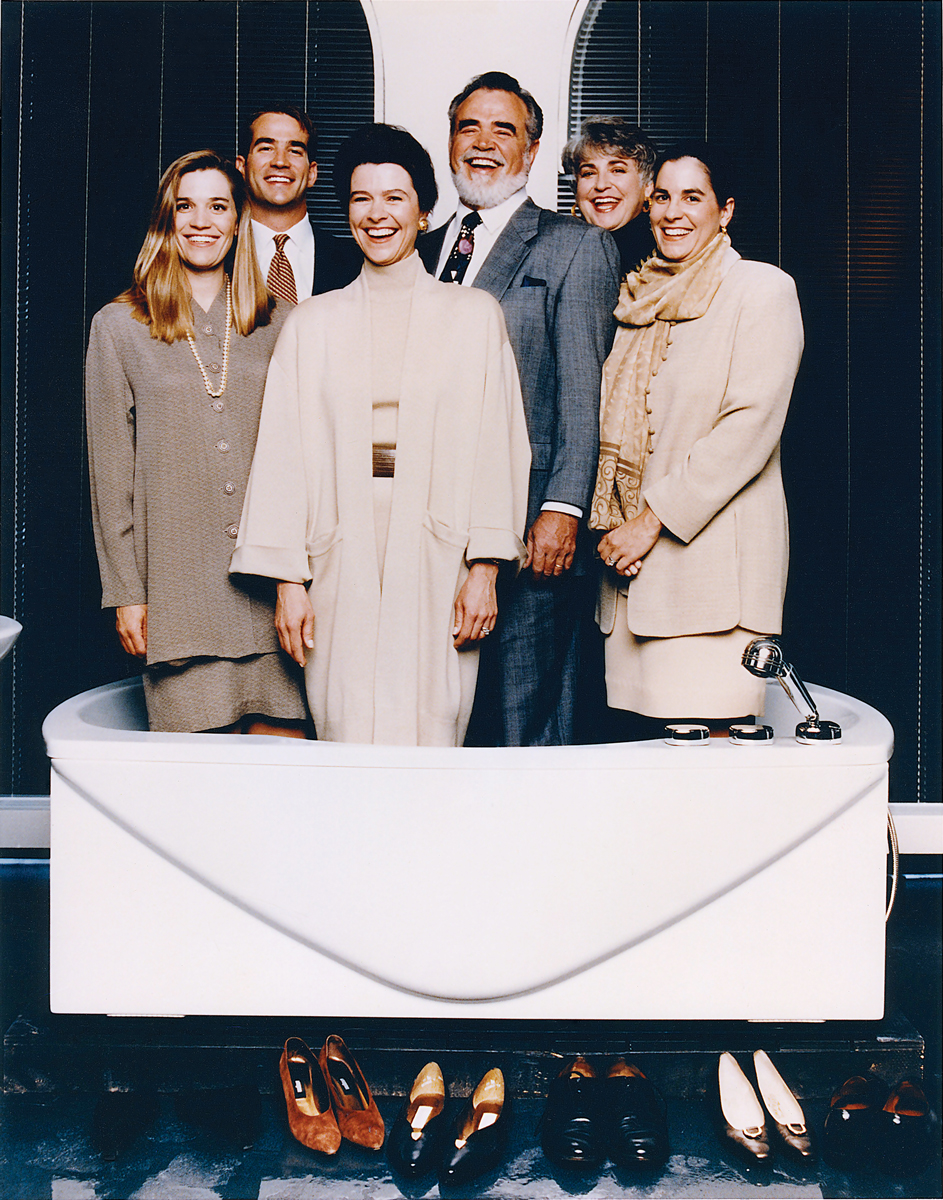
Heat exchange
When Herb's father initially suggested he join the company, Herb rebelled and went off to be an actor before returning home and joining Kohler Co. He now has three grown children (Laura, now 54, Rachel, 52 and David, 51) who, he says, he did not encourage to go into the business.
“I did not even talk about the company unless they specifically asked questions about it,” he says.
“I thought it was more important for them to find their own talents and dreams.”
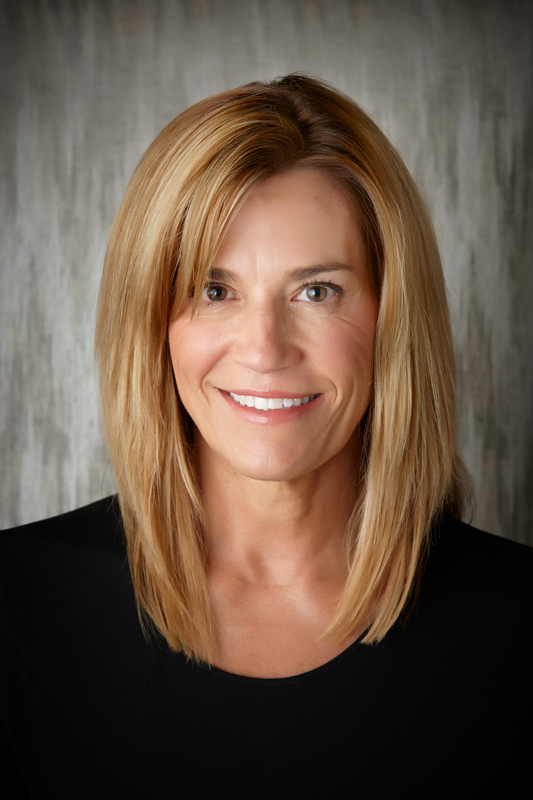
But the three children found their way into the company on their own.
“Each of the three were given an offer because I felt they had the potential to be good leaders,” says Kohler.
Herb's second wife, Natalie Black Kohler, a graduate of Stanford University, joined Kohler as a lawyer in 1985 and became general counsel and senior vice president of communications. At present she heads the Kohler Foundation (which is separate from Kohler's company charitable giving).
In 1978, Laura Kohler, Herb's oldest child, started working part time in the company during high school and college. Her first job was as a waitress in one of the Kohler restaurants and as a receptionist. Laura left the company for Duke and Catholic University, then moved to Chicago and became an actress and developed her own theatre company. In 1993, her father asked her to interview for a job as director of public affairs at Kohler. She was given the job and moved back to Kohler, Wisconsin. Since then she has held senior roles in communications and human resources (HR). Laura is now senior vice president of HR & stewardship.
“My father challenged all of us to take risks and push ourselves,” says Laura.
“His theme growing up was 'you are going to know the value of the dollar. There are no free rides.'” Herb, a proponent of character building, sent all three of his children to Outward Bound. The non-profit organisation's motto is “to serve, to strive and not to yield” and pushes teens and adults to experience physical challenges and the wilderness.
“He wanted us to be passionate about whatever we did, and seek out adventure,” says Laura, now the president of Outward Bound.
“My mother was the nurturer,” says Laura.
“My dad was the pusher. It was tough love with him and consequently as adults, we are very capable. He believes we are in our positions because we can do the job, not because our last name is Kohler.” She adds, “I grew up in a different environment in the business than my father did, so we are stylistically somewhat different, but there are probably not two human beings from a business standpoint more similar on the earth.”

Back siphonage
Rachel Kohler, the middle child, graduated from Princeton University and from the University of Chicago with a master's in business, then worked for Booz Allen and joined the company in 1992 as director of corporate planning and development.
“My dad did not make it easy for us,” Rachel says.
“His expectations were for us to achieve. He did not care what we did as long as it focused on achievement.”
For Rachel, having a family was a top priority.
“What I did not plan was how much I enjoy being a mom,” she says.
“That changed my thinking.”
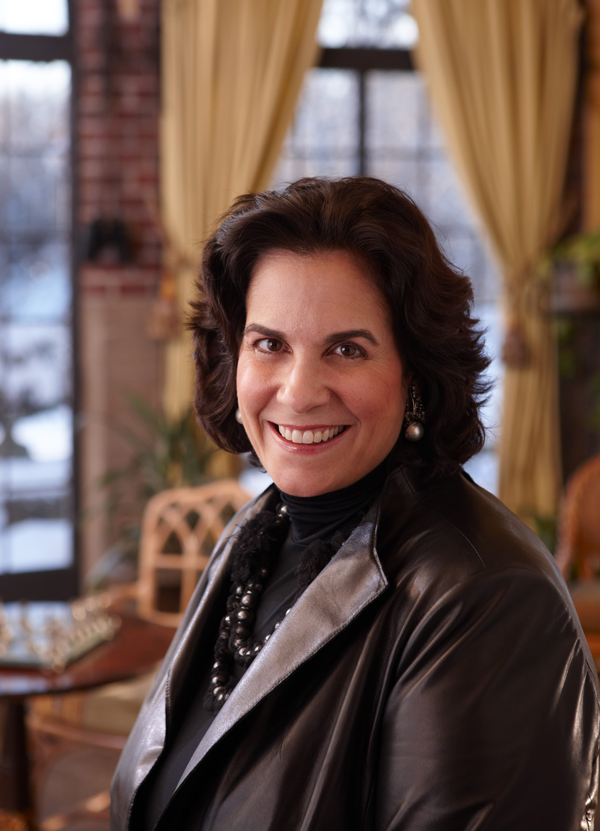
Rachel, who lives in Chicago with her family and runs her own web-based business, no longer works for the company but remains on the Kohler board.
Since 2015, the company's reins have been in the hands of David Kohler who succeeded his father as president and chief executive officer. Like his siblings, David began at the company while in high school, working summers at the Kohler stables for minimum wage. When he turned 18, he was old enough to work in the factory, and his first summer job was as a caster in the pottery in Kohler.
When David joined Kohler full time, after graduating from Duke, he rotated through front-line positions in the plumbing and power businesses in all of Kohler's manufacturing divisions. He also worked in financial and strategic planning before going to Kellogg for an MBA. After a stint with Dayton Hudson as a buyer of fine china, he rejoined the company in 1993 as director of fixtures in the marketing department.
“It was such a terrific place to enter our company because of how important marketing is; it was the heart of the plumbing business,” says David.
In 1995, when the division lacked a head of sales, David asked his father for the position.
“And my father, true to form, said, 'David, you cannot have sales and marketing because we do not structure things that way here. If you want to do sales, you will have to vacate marketing.'”
David says he chose sales because he felt Kohler needed to drive improvement in the sales organisation.
“Then we consolidated our branch offices and created a consumer call centre and introduced incentive compensation,” says David.
“Our head of kitchen and bath left to join another company, and I was asked to take on that position; so, my work through the company was a combination of delivering results in the position I was in, as well as opportunities for advancement opening up.”
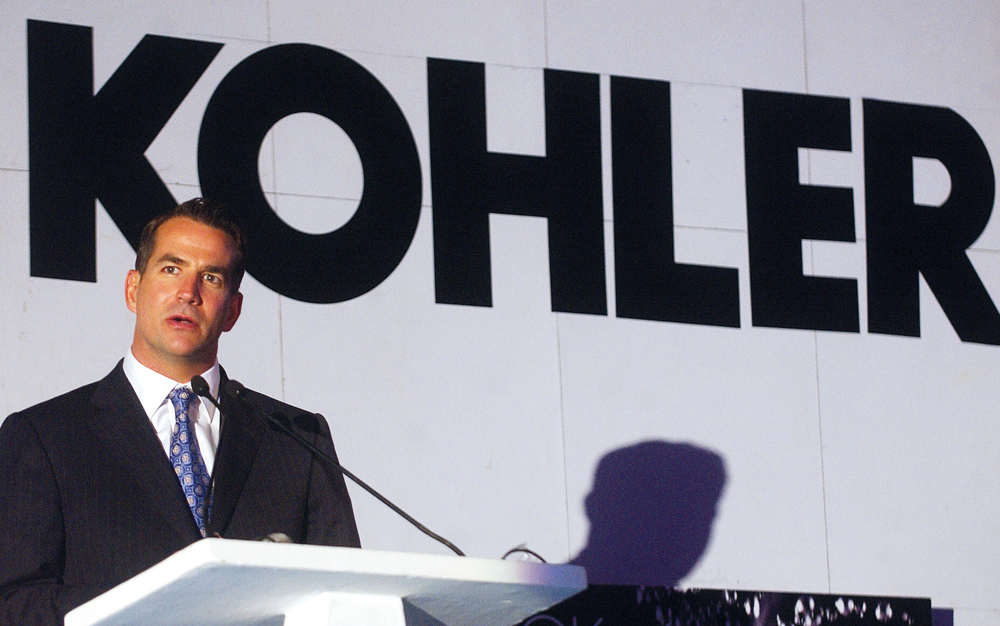
Pushing the right buttons
Insofar as his father's influence is concerned, David says, “No individual has influenced the executive that I am more than my father. On most business decisions, we landed with the same conclusion. I worked for him directly for over 20 years, so I have very much learned his passion, his work ethic, his level of discipline, his ability to focus, his critical thinking, the importance of design and innovation, the importance to have a backbone and say 'no, not good enough' when the time is right, depending on the situation.”

Herb was thrown into leading Kohler at a very young age.
“That brings with it a completely different development environment than an executive who grows up in the business,” says David.
“Never in Kohler's history have we, with the exception of my grandfather and his brother overlapping for such a long period of time, had a situation where a son or a daughter worked for their father. Then succeeded them as the chief executive for as long a period as we have seen in this transition. I came up through what was a much larger organisation and I worked through many different chairs versus the environment that he stepped into because of the necessity of the time. That forges different management approaches in those different environments.”
David says that under his leadership Kohler will not dramatically depart from what has built this company over the last 144 years.
“We are not going to really diverge from what has made it successful,” he says.
“We will continue to focus on growth and living our mission and guiding principles, very similar to what we have historically focused on: a very strong organisation of people with passion and drive.
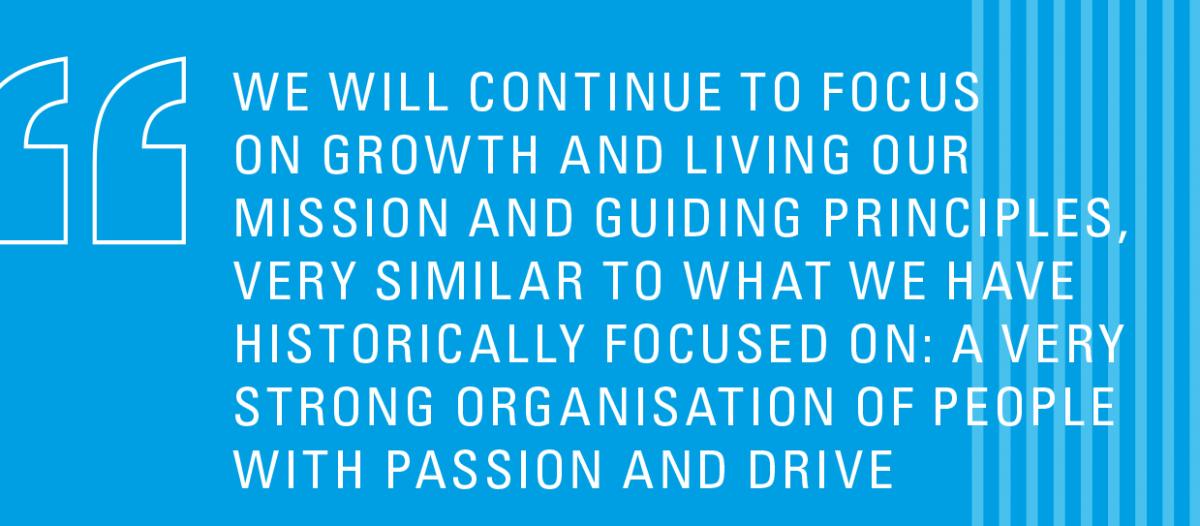 “We are going to focus on innovation and being first-to-market and driving leading-edge design and technology in product and process. We are going to continue to improve our operational execution and competence and quality of delivery. We are going to continue to build our brand creatively as we always have around the world, but now in a digital environment. And we are going to continue to make acquisitions where appropriate as we have historically done to augment our growth.
“We are going to focus on innovation and being first-to-market and driving leading-edge design and technology in product and process. We are going to continue to improve our operational execution and competence and quality of delivery. We are going to continue to build our brand creatively as we always have around the world, but now in a digital environment. And we are going to continue to make acquisitions where appropriate as we have historically done to augment our growth.
“Finally, we have a deep belief in sustainability and stewardship and we are going to make sure we are true to those beliefs in our business practices and around the world.”
May the faucet be with you
The Kohlers are extremely innovative, but they also have a strong heritage of charity and beneficence. Beginning in 1911 the company became one of the first in the US to provide workers' compensation coverage for its employees. Kohler Village was developed through the idea of the European garden city movement.
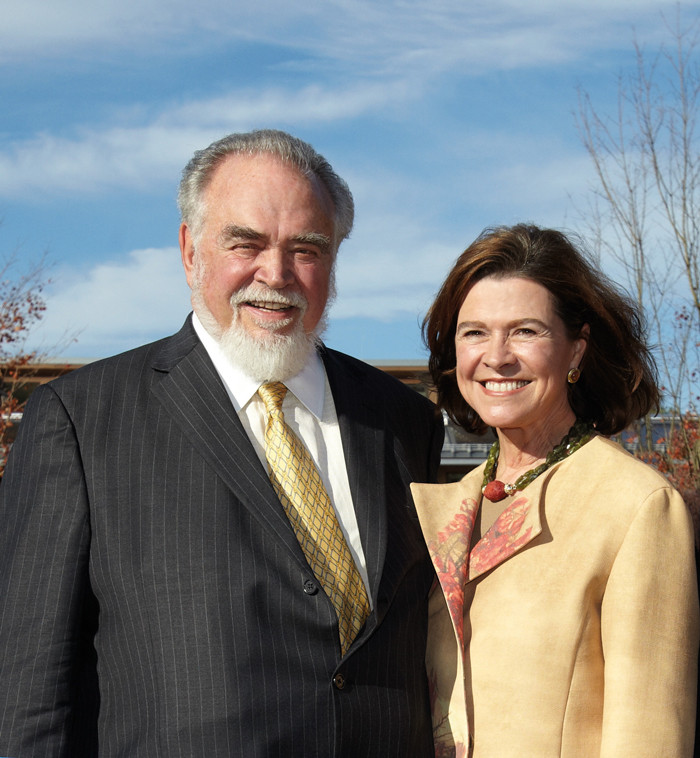 In 1917 the Kohler Company built houses in the village and sold the houses and land to the employees at cost, which were financed by a building and loan owned by employees, which led to the villagers voting to change the town's name to Kohler from its original, Riverside. The following year, Walter Kohler established the Quarter Century Club and the American Club, an inn intended as a temporary home for immigrant male factory workers. In 1938 it set up the Kohler Credit Union for its employees.
In 1917 the Kohler Company built houses in the village and sold the houses and land to the employees at cost, which were financed by a building and loan owned by employees, which led to the villagers voting to change the town's name to Kohler from its original, Riverside. The following year, Walter Kohler established the Quarter Century Club and the American Club, an inn intended as a temporary home for immigrant male factory workers. In 1938 it set up the Kohler Credit Union for its employees.
In 1981, Herb Kohler restored and modernised the property and in 1988 introduced the company's first golf course at Blackwolf Run as part of the American Club resort hotel. In 2004, Kohler purchased the Old Course Hotel in St Andrews, Scotland, and in 2010 began the renovation of a dormitory there that became Hamilton Grand in St Andrews. The company today is building its first hotel from scratch and is adding a Kohler Waters Spa next to the Green Bay Packers' stadium which will open in July 2017.
While tourists and visitors revel over the hospitality programme, Kohler employees trumpet the company's stewardship programme.
“Company associates today really want to be in an environment where they can make a difference in their jobs and also in the world,” says Laura.
“We give them that opportunity, whether it is pushing for sustainability and clean environment practices, driving food bank contributions, doing volunteer activities, or creating their own fundraising initiatives for local organisations.”
 Laura, once the head of the Kohler Foundation, says being a global company means impact is felt far beyond the reach of Wisconsin.
Laura, once the head of the Kohler Foundation, says being a global company means impact is felt far beyond the reach of Wisconsin.
“We have a vibrant stewardship programme in which our associates are giving back to their communities around the world where they work and live.”
She adds, “We certainly have corporate giving, which is the cash philanthropy, but almost more importantly we have the stewardship opportunities where associates can raise money in their community and volunteer. We are harnessing the passion of associates to give back to their community.”
Laura mentions one example: “We are, in part, a sanitation company. We focus on the bathroom as one of our key product lines. Our teams were researching the key needs of the Indian community, and we found that sanitation was obviously very important. In other communities, we focus on libraries and books and helping schools get back on their feet. They might not need bathrooms, but they need library volunteers, technical centres or computer labs. We tailor our efforts to the needs of communities that are connected in some way to where our businesses are.”

Feeling flush
David Kohler has taken over the company in a digital age in which many businesses are facing new challenges.
“It is changing business-to-business transactions,” he says.
“It is changing security with cyber security, it is changing how you build a brand to live in the digital space and digital advertising. It is changing how you can transact business with consumers. But the only reason we have been successful for so many years is because we have been able to adapt. So, we are adapting our marketing strategy, our channel strategy, and our business strategy to that digital environment while still staying true to what we believe relates to brands and how we do our business.”
Laura says she and David have grown up under their father's guidance and they believe what he believes.
“Kohler Company must grow and change as the world is changing, but the fundamentals stay the same: our investment in innovation, in people, our ability to be humble, continuously improve, and to figure out what we could do better. All of those things are chords that have made us successful today and will take us into the future.”
And to think it all started with a humble hog scalder.


